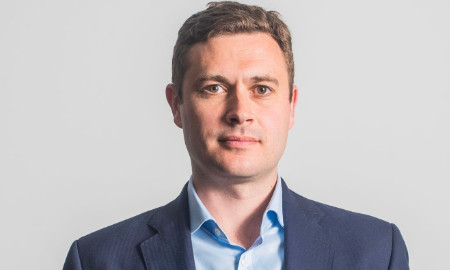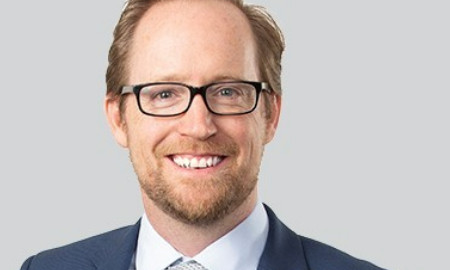Sign up for our free daily newsletter
YOUR PRIVACY - PLEASE READ CAREFULLY DATA PROTECTION STATEMENT
Below we explain how we will communicate with you. We set out how we use your data in our Privacy Policy.
Global City Media, and its associated brands will use the lawful basis of legitimate interests to use
the
contact details you have supplied to contact you regarding our publications, events, training,
reader
research, and other relevant information. We will always give you the option to opt out of our
marketing.
By clicking submit, you confirm that you understand and accept the Terms & Conditions and Privacy Policy
The class representative in the Car Delivery Charges Cartel Claim has agreed a £1.5m settlement with shipping line CSAV, one of five defendant groups involved in a price fixing cartel.
It is the first settlement of its kind to be agreed on an opt-out basis in the UK.
US claimant firm Scott+Scott, which acts for class representative Mark McLaren, and WilmerCutler, advising CSAV, have asked the Competition Appeal Tribunal to approve the settlement in December.
The claimants originally sought £2.4m from CSAV, the smallest defendant in the claim with a 1.7% market share of the cartel. The proposed damages are accompanied by costs of £280,000 and settlement costs of £100,000.
The class action followed a six-year price fixing operation that led to a €395m settlement agreement in 2018 between the defendants and the EU. A total of £150m is being sought from the defendant group.
McLaren has brought the claim on behalf of individuals and businesses who bought or leased 17 million new cars and vans during the period in question against the defendants – five of the world’s largest shipping companies providing ‘roll-on, roll-off’ services.
Brands affected by the agreement include Ford, Vauxhall, Volkswagen, Peugeot, BMW, Mercedes-Benz, Nissan, Toyota, Citroen and Renault.
McLaren said the decision was “a significant development for the wider UK collective action regime”, while Stephen Friel, chief executive of litigation funders Woodsford, which backed the claim, said it “demonstrates the power of litigation funding to help hold large companies to account for their wrongdoing”.
Specialist group litigation barrister James White, of Henderson Chambers, commented: “This is a big moment, which will shed important light on how the collective settlement regime will function in practice, including the process of settling with one of a number of defendants.”
The settlement will be approved by the CAT on the basis of whether it is ‘just and reasonable’ for the class members, with any approved settlement sum held in escrow until the end of proceedings.
Bryan Cave Leighton Paisner partner Ed Coulson said the CAT would need to weigh up the settlement amount provisionally agreed by the parties against the costs and risks of taking the claim to trial, including whether McLaren was likely to achieve significantly more than that settlement sum at trial.
“The CAT will have to conduct a merits assessment, of sorts, at what is a relatively early stage in the proceedings of this case, prior to disclosure concluding and prior to full factual and expert evidence having been submitted, in determining whether it should approve the settlement,” Coulson said.
Skadden partner Bruce Macaulay added: “All eyes will be on whether it is approved and the level of scrutiny applied by the CAT.”
Pointing to the July Supreme Court PACCAR judgment, which brought into question the enforceability of funding agreements in opt-out collective proceedings, Macaulay said funders would closely follow the CAT’s decision and “whether it considers… the methodology for distributing damages appropriate”.
However, GLP understands that the potential settlement, which was negotiated prior to the PACCAR ruling and concluded after it, is not directly affected by issues arising in that case.
The collective action was given the green light by the CAT in July 2022, but was subject to a December 2022 appeal, which failed to get the class action thrown out. In a unanimous ruling, the Court of Appeal preferred the claimant’s arguments, which it said were a matter for trial.
The court said the CAT’s rulings had sufficient justification to proceed to the next phase of litigation. It remitted the claim to the tribunal to reconsider case management on pricing and amended other aspects of the ruling, detracting from McLaren’s case. In May, the Supreme Court refused the defendants permission to appeal, clearing the way for the claim against the remaining defendants to proceed to trial in 2025.
Scott+Scott’s legal team, led by London office head Belinda Hollway, instructed Sarah Ford KC, Emma Mockford and Sarah O’Keefe, of Brick Court Chambers, and Nicholas Gibson, of Matrix Chambers.
The WilmerHale team was led by London-based competition partner Cormac O’Daly and instructed Sarah Abram KC, of Brick Court, and Hannah Bernstein, of Fountain Court Chambers.
The other defendants are represented by Arnold & Porter Kaye Scholer, Cleary Gottlieb Steen & Hamilton, Steptoe & Johnson and Baker Botts, instructing counsel from Brick Court and Monckton Chambers.
Email your news and story ideas to: [email protected]











